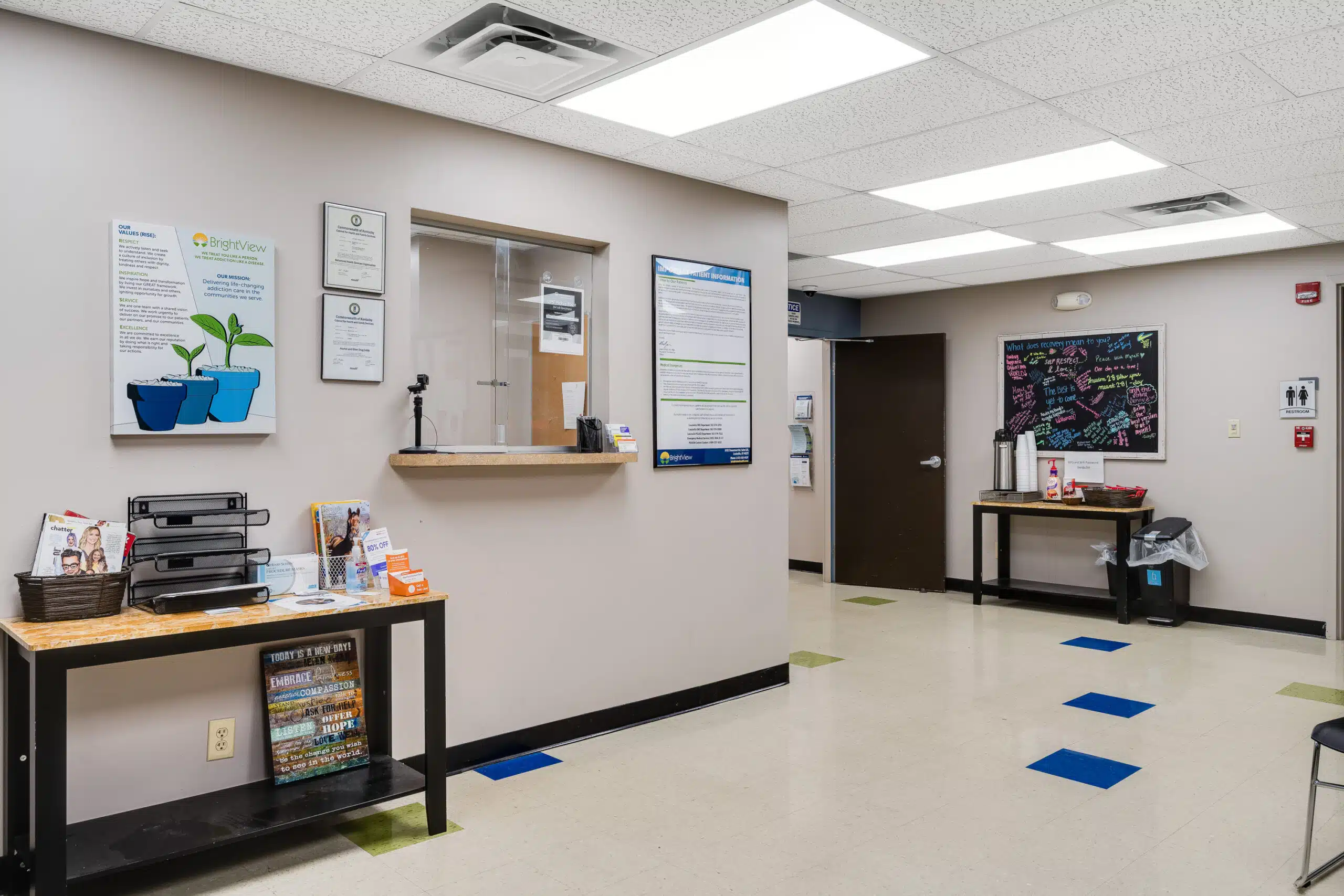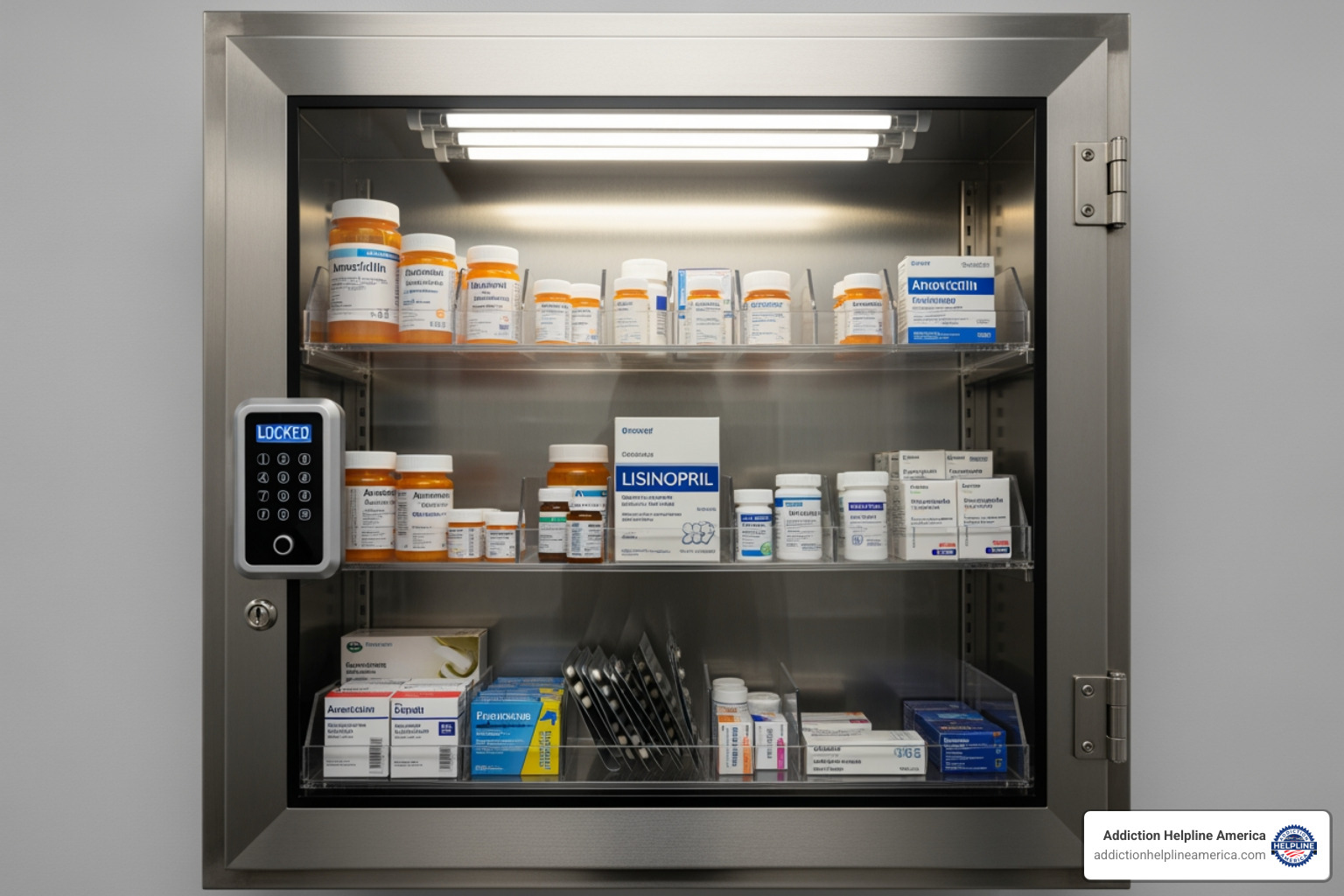
What’s the Real Story on Medication in Rehab?
Does rehab centers give you drugs? Yes, but it’s not what you might think. Reputable rehab centers administer FDA-approved, prescribed medications to manage withdrawal, reduce cravings, and treat co-occurring mental health disorders. This is a legal and necessary part of evidence-based treatment.
- Therapeutic Medications Are Key: Rehabs use drugs like methadone, buprenorphine, and naltrexone as part of a medical treatment plan.
- Illegal Drugs Are Prohibited: No legitimate facility will ever provide illegal drugs or unprescribed medications.
- Medication-Assisted Treatment (MAT) Is Effective: Combining medication with therapy is proven to improve recovery outcomes.
- You Have Rights: Patients must give informed consent and can refuse medication or ask questions about their treatment.
While some unethical facilities have been caught improperly providing substances, this is malpractice and illegal. Reputable centers use medication as a medical tool. The confusion often stems from Medication-Assisted Treatment (MAT), where medications like Suboxone are carefully dosed to stabilize brain chemistry, not to get a patient high. In fact, approximately 80% of all treatment facilities use medications during detox because MAT is proven to increase treatment retention and reduce illicit drug use when combined with counseling.
At Addiction Helpline America, we help people understand how rehab centers give you drugs as part of legitimate medical care, connecting you with accredited facilities that prioritize your safety.
Does rehab centers give you drugs terms to remember:
- Prescription Drugs Treatment
- Top Alcohol & Drug Rehab Centers in Los Angeles, California
- cocaine addiction recovery
Why Is Medication Used in Addiction Treatment?
When someone enters rehab, they are often physically dependent on a substance, with disrupted brain chemistry and underlying trauma. Medication is a lifeline, not a crutch, that provides the support needed to heal safely. It’s not about replacing one drug with another; it’s about making recovery safer, more comfortable, and more successful.
Medication is essential for several reasons:
- Medically Supervised Detox: For substances like alcohol and benzodiazepines, withdrawal can be life-threatening. Medications stabilize vital signs and prevent dangerous complications.
- Managing Withdrawal Symptoms: For all substances, medications can alleviate severe discomfort like nausea, muscle aches, and anxiety, making the process bearable so you can focus on healing.
- Reducing Cravings and Preventing Relapse: Certain medications significantly reduce the intensity of cravings, a major trigger for relapse. Others work by blocking the euphoric effects of substances or causing an unpleasant reaction if they are used.
- Treating Co-Occurring Disorders: Many people with addiction also have depression, anxiety, or PTSD. Treating these underlying mental health conditions with medication is critical for sustainable recovery. Our Addiction Treatment: Xanax Treatment page explores this.
- Improving Treatment Retention: When recovery is more tolerable, people stay in treatment longer, which is one of the strongest predictors of long-term success. Medication is always used as part of a comprehensive Addiction Treatment plan that includes therapy and counseling.
What are the risks and benefits of using medications during detox?
Detox is often the most physically challenging part of recovery. Medication is critical for managing this phase safely.
The benefits are substantial:
- Safety: For alcohol and benzodiazepine withdrawal, medically supervised medication can prevent life-threatening seizures and delirium tremens.
- Comfort: For opioid withdrawal, medications drastically reduce severe flu-like symptoms, nausea, and anxiety, making it possible for people to stick with treatment.
- Medical Stability: Medications help prevent secondary health issues like dehydration and cardiovascular stress during withdrawal.
However, there are risks that require professional oversight:
- Dependence Potential: Some detox medications can be habit-forming, which is why they are only used under strict medical supervision and tapered appropriately.
- Side Effects: Like any drug, side effects like drowsiness or nausea can occur. Medical staff monitor and manage these reactions.
- False Sense of Security: Medication only manages symptoms; it doesn’t cure addiction. It must be paired with therapy for lasting change.
Reputable Detox Facilities understand this balance, following Clinical Guidelines for Withdrawal Management to ensure patient safety.
How are pre-existing mental health medications handled?
About half of people with substance use disorders also have a co-occurring mental health condition, or dual diagnosis. If you enter rehab already taking medications for depression, anxiety, or another condition, they will almost always be continued.
Abruptly stopping these medications is dangerous and can worsen mental health crises. Reputable facilities prioritize continuity of care through a clear process:
- Thorough Evaluation: During intake, staff review your complete medication history.
- Psychiatric Assessment: An on-staff doctor or psychiatrist assesses if your current medications and dosages are appropriate, making adjustments as needed.
- Ongoing Monitoring: Staff continuously monitor your response to ensure your mental health remains stable throughout treatment.
One exception may be for prescribed medications with high abuse potential, like certain stimulants or benzodiazepines. These might be tapered or replaced with non-addictive alternatives to support your recovery. The goal is to treat both the addiction and the mental health condition simultaneously, a core principle of our Mental Wellness Support Complete Guide. Real recovery means treating the whole person.
So, Does Rehab Centers Give You Drugs Therapeutically?
Yes, rehab centers give you drugs therapeutically as part of a practice called Medication-Assisted Treatment (MAT). This approach combines FDA-approved medications with counseling and behavioral therapies to treat addiction. It’s a “whole-patient” method backed by decades of research.
When a rehab uses MAT, they are following strict medical protocols. Medications are prescribed by a physician based on your specific needs and are part of a comprehensive Addiction Treatment plan. This is worlds apart from the substances that lead to addiction. Legitimate facilities never provide illegal drugs or unprescribed medications; doing so is illegal and constitutes malpractice.
According to the National Institute on Drug Abuse, MAT is proven to increase patient survival, improve treatment retention, decrease illicit opioid use, and help people maintain employment. It challenges the outdated idea that recovery is about willpower alone. Addiction changes brain chemistry, and as detailed in NIDA’s guide to Addiction Medications, medication can be essential for healing. You can learn more about the therapies used alongside MAT on our Therapeutic Approaches page.
What types of medications are used for different addictions?
The medications used in treatment vary depending on the substance use disorder. The FDA has approved specific medications for opioid, alcohol, and tobacco addictions.
- For Opioid Use Disorder: Methadone reduces cravings and withdrawal. Buprenorphine (Suboxone®) also reduces cravings but has a lower risk of misuse. Naltrexone (Vivitrol®) blocks the euphoric effects of opioids.
- For Alcohol Use Disorder: Naltrexone reduces the desire to drink. Acamprosate (Campral®) helps restore brain chemistry after detox. Disulfiram (Antabuse®) causes an unpleasant reaction to alcohol, acting as a deterrent.
- For Tobacco Use: Bupropion (Zyban®) and Varenicline (Chantix®) both reduce nicotine cravings and withdrawal symptoms.
While no specific medications are FDA-approved for stimulant or cannabis addiction yet, rehabs may prescribe other drugs to manage withdrawal symptoms or treat co-occurring mental health issues.
What Are the Rules for Administering Medication in Rehab?
Legitimate rehab facilities follow strict protocols to ensure medications are administered safely and ethically. These safeguards protect your health during a vulnerable time.
Key rules include:
- Comprehensive Medical Evaluation: A licensed physician assesses your medical history and substance use patterns upon admission to create a personalized plan.
- Physician Prescription: All medications are prescribed by a qualified doctor for your specific needs.
- Ongoing Monitoring: Medical staff constantly track your response to medications and watch for side effects, adjusting treatment as needed.
- Licensed Staff Administration: Only licensed professionals like nurses and doctors dispense and administer medications.
- Secure Storage: All medications are stored in a locked, secure area to prevent diversion or misuse.
- Informed Consent: Your medical team must explain what each medication is, why it’s recommended, and its potential side effects before you begin taking it.
- Detailed Documentation: Every dose and your response to it are carefully logged in your medical records.
These protocols are standard in quality programs, from 30 Day Rehab to long-term care.
What are a patient’s rights regarding medication?
Understanding your rights empowers you to advocate for your own recovery. You have the:
- Right to Informed Consent: You must be told what a medication is, why you are taking it, and what the side effects are before you agree to treatment.
- Right to Ask Questions: You can ask as many questions as you need to feel comfortable with your treatment plan.
- Right to Refuse Treatment: You generally have the right to refuse medication, though it’s crucial to discuss your concerns with your medical team first, as refusal can impact your health.
- Right to Privacy: Your medical information is protected by federal privacy laws (HIPAA) and cannot be shared without your permission.
- Right to Access Medical Records: You can request copies of your records to stay informed about your care.
If you feel pressured or your concerns are dismissed, speak up to a supervisor or contact us at Addiction Helpline America.
How does medication administration differ between inpatient and outpatient rehab?
The structure of your program changes how medications are managed. In inpatient rehab, you receive 24/7 medical supervision. Staff administer all medications at scheduled times, monitor you for side effects, and store all drugs securely. This controlled environment is ideal for detox and for individuals needing intensive oversight.
In outpatient rehab, you live at home and are responsible for self-administering your medications. You pick up prescriptions from a pharmacy and take them as directed. Supervision occurs during periodic check-ins, and your medical team relies more on your self-reporting. This model offers more flexibility but requires a high level of personal responsibility and is best for those with strong support systems or less severe addictions.
How Can I Identify and Handle Medication Mismanagement?
While most rehabs are safe, medication mismanagement can happen. Recognizing the warning signs is key to protecting yourself or a loved one.
Be alert for signs of overmedication, such as excessive drowsiness, confusion, or slurred speech. A patient shouldn’t feel like a zombie; medication should help them engage in recovery. Conversely, undermedication is also a problem. If severe cravings or withdrawal symptoms continue without relief, the treatment may be inadequate.
The most serious issue is the provision of unauthorized drugs. If a center gives patients illegal substances or unprescribed “comfort meds,” it is breaking the law and putting lives at risk. If you have concerns, Addiction and Rehab Hotlines can provide immediate guidance.
What are the red flags of a facility that gives you drugs improperly?
Avoid facilities that exhibit these red flags:
- Lack of personalized treatment plans where everyone receives the same medication.
- Unqualified staff (e.g., counselors without medical licenses) administering medications.
- Pressure to take unneeded medication or withholding necessary prescriptions without medical justification.
- Offering illegal substances or unprescribed controlled drugs.
- Poor record-keeping with no clear documentation of medication administration.
- A focus on profit over patient wellbeing, such as keeping patients enrolled with unnecessary medications.
What are my legal options if I experience mismanagement?
If you’ve been harmed by medication mismanagement, you have legal options. The harm can include worsened addiction, physical injury, or psychological trauma.
Take these steps:
- Document Everything: Keep detailed records of dates, medications, staff names, and any adverse reactions. Request copies of your medical records.
- Gather Evidence: Collect witness statements from other patients or visitors, and take photos if possible.
- File a Complaint: Report the facility to your state’s healthcare licensing board and medical board. These bodies can investigate and take disciplinary action.
- Seek Legal Counsel: If you suffered significant damages, a medical malpractice lawyer can evaluate your case. You may be eligible to recover damages for medical bills, pain and suffering, and other losses.
Holding negligent facilities accountable helps protect others from similar harm. At Addiction Helpline America, we connect you only with facilities that uphold the highest standards of ethical care.
How Do I Choose a Safe and Reputable Rehab Facility?
Choosing the right rehab is crucial. You need a facility that will prioritize your safety and use evidence-based practices. Here are the key markers of a quality center:
- Accreditation: Look for accreditation from The Joint Commission (JCAHO) or the Commission on Accreditation of Rehabilitation Facilities (CARF). This ensures the center meets national standards for safety and care.
- Qualified Staff: The team should include licensed physicians, psychiatrists, and registered nurses with training in addiction medicine.
- Transparency: A reputable center will openly discuss its medication protocols, MAT approach, and policies for pre-existing prescriptions.
- Evidence-Based Practices: The facility should use scientifically proven methods like Cognitive Behavioral Therapy and Medication-Assisted Treatment, not outdated ideology.
- Individualized Care: Treatment plans should be personalized to your unique history and needs, not a one-size-fits-all program.
- Positive Reviews: Look for consistent positive feedback about patient safety and staff compassion, but be wary of recurring complaints about mismanagement.
Addiction Helpline America can connect you with accredited facilities offering various Types of Treatment Programs that meet these standards.
What questions should I ask about medication policies?
Asking detailed questions is smart and helps protect your safety. Be sure to ask:
- “What medications do you use for Medication-Assisted Treatment, and for which addictions?”
- “How are medications stored and administered? Who dispenses them?”
- “What are your policies on pre-existing prescriptions for mental or physical health conditions?”
- “What is your protocol for managing withdrawal symptoms?”
- “Who is on your medical staff, and what are their qualifications?”
- “How do you monitor patients for side effects and medication effectiveness?”
- “What are my rights regarding medication, including the right to refuse treatment?”
A professional facility will welcome these questions. Evasiveness is a red flag.
What are common misconceptions about taking medications in rehab?
Myths about medication in rehab can prevent people from getting effective help. Here’s the truth:
- Myth: “Taking medication is just replacing one drug with another.”
Fact: Therapeutic medications like buprenorphine don’t produce a high when taken as prescribed. They stabilize brain chemistry, which is a medical treatment, not a replacement for substance abuse. - Myth: “All my current medications will be stopped when I enter rehab.”
Fact: Essential medications for physical or mental health are continued under medical supervision. Only drugs with high abuse potential may be safely tapered or replaced. - Myth: “MAT is a crutch, not real recovery.”
Fact: Addiction is a medical condition that changes the brain. MAT is a proven medical tool that helps the brain heal, allowing you to engage in therapy and build coping skills. - Myth: “You can only recover through complete abstinence from everything.”
Fact: Recovery is not one-size-fits-all. For many, MAT is the most effective path to long-term success. What matters is finding what works for you.
Your Next Step to Safe and Effective Treatment
If there’s one thing to take away, it’s this: legitimate rehab centers give you drugs as part of evidence-based medical care. When used properly—prescribed by doctors, administered by nurses, and closely monitored—medication is a powerful tool that manages withdrawal, quiets cravings, and supports lasting recovery.
The key is choosing a facility that handles medication with the care it deserves. Look for accreditation from JCAHO or CARF, ask about staff qualifications, and demand transparency about their protocols. You have the right to informed consent and to have your questions answered.
At Addiction Helpline America, we know how overwhelming it is to find the right treatment. We provide free, confidential guidance to connect you with a reputable, accredited facility from our vetted nationwide network. We’re here to listen and help you find the right fit for your recovery journey.
You don’t have to do this alone. Whether for yourself or a loved one, reach out today. Let us help you find a safe, effective treatment program where you can heal with confidence.
Our helpline is 100%
free & confidential
If you or someone you care about is struggling with drug or alcohol addiction, we can help you explore your recovery options. Don’t face this challenge alone—seek support from us.
Programs
Resources
Will my insurance
cover addiction
treatment?
We're ready to help
Find the best
drug or alcohol treatment
center
Are you or a loved one struggling with addiction? Call today to speak to a treatment expert.















